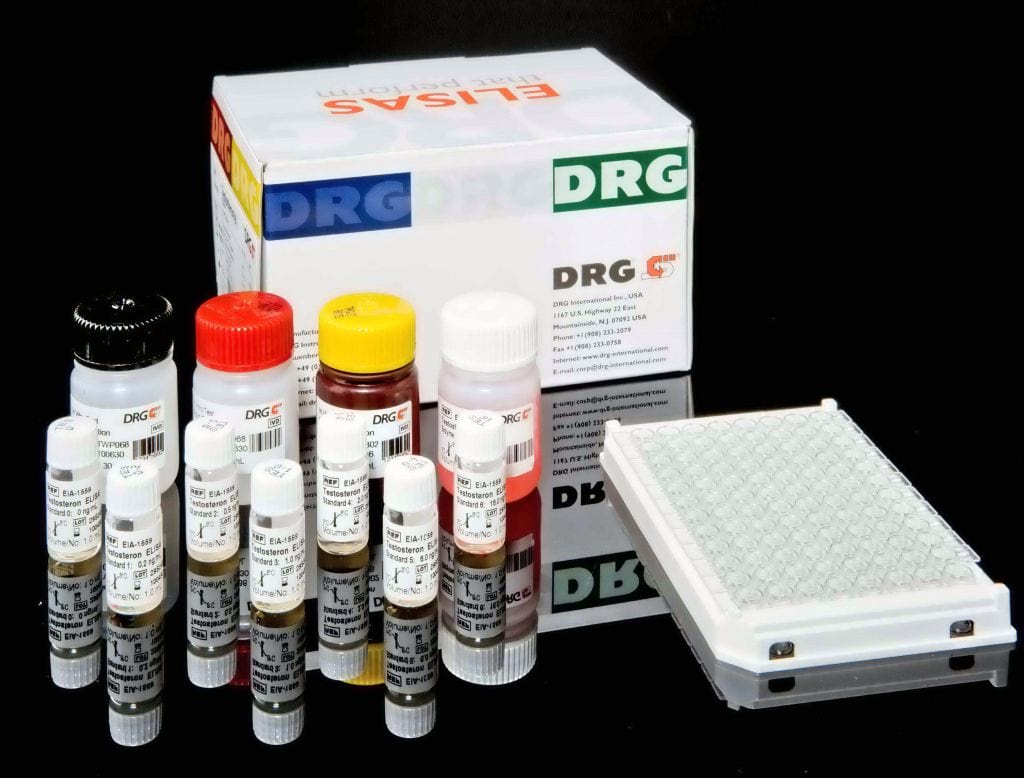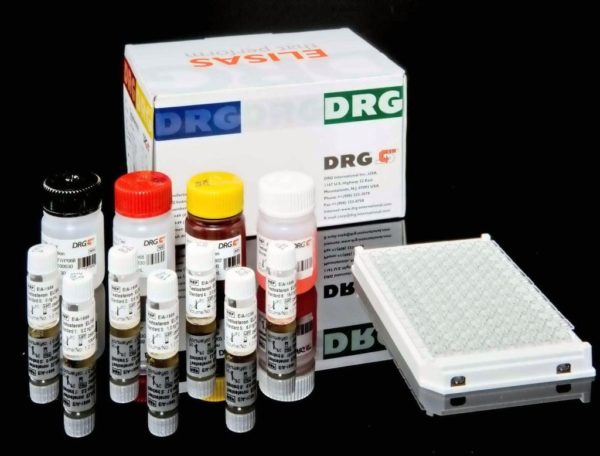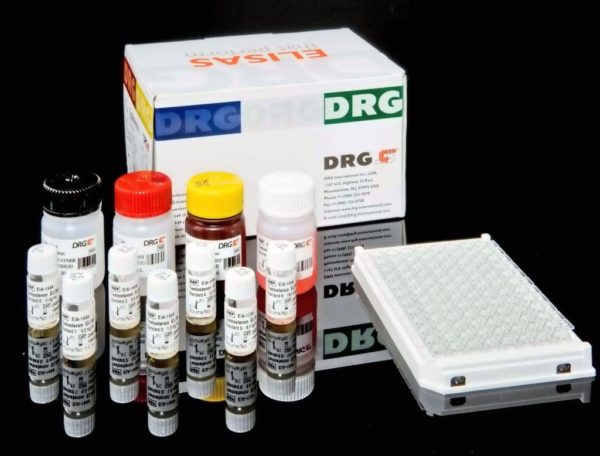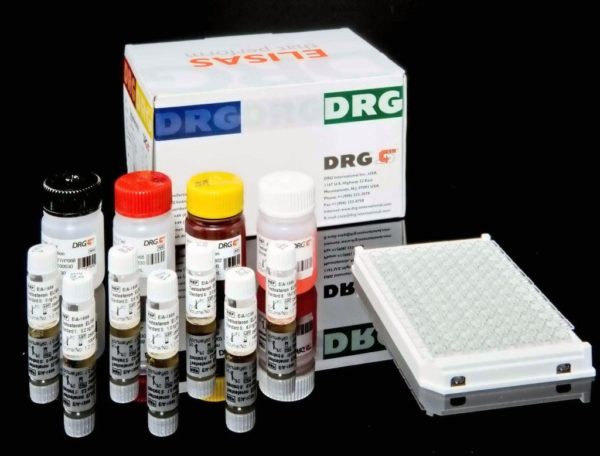Description
The Calcitonin ELISA is intended for the quantitative determination of Calcitonin in human serum.
The test is for in vitro diagnostic use only.
Calcitonin, a 32-amino-acid polypeptide, is secreted primarily by the thyroidal parafollicular C_cells. Its main biological effect is to inhibit osteoclastic bone resorption. This property has led to CalcitoninÕs use for disorders characterized by increased resorption such as PagetÕs disease, for some patients with osteoporosis.
The DRG Calcitonin Immunoassay is a two-site ELISA [Enzyme-Linked ImmunoSorbent Assay] for the measurement of the biologically intact 32 amino acid chain of Calcitonin.It utilizes two different mouse monoclonal antibodies to human calcitonin specific for well-defined regions on the calcitonin molecule. One antibody binds only to Calcitonin 11_23 and this antibody is biotinylated. The other antibody binds only to Calcitonin 21-32 and this antibody is labeled with horseradish peroxidase [HRP] for detection.In this assay, calibrators, controls, or patient samples are simultaneously incubated with the enzyme labeled antibody and a biotin coupled antibody in a streptavidin-coated microplate well. Thus the calcitonin in the sample is ÒsandwichedÓ between these two antibodies. At the end of the assay incubation, the microwell is washed to remove unbound components and the enzyme bound to the solid phase is incubated with the substrate, tetramethylbenzidine (TMB). An acidic stopping solution is then added to stop the reaction and converts the color to yellow. The intensity of the yellow color is directly proportional to the concentration of calcitonin in the sample.A dose response curve of absorbance unit vs. concentration is generated using results obtained from the calibrators. Concentrations of calcitonin present in the controls and patient samples are determined directly from this curve.




